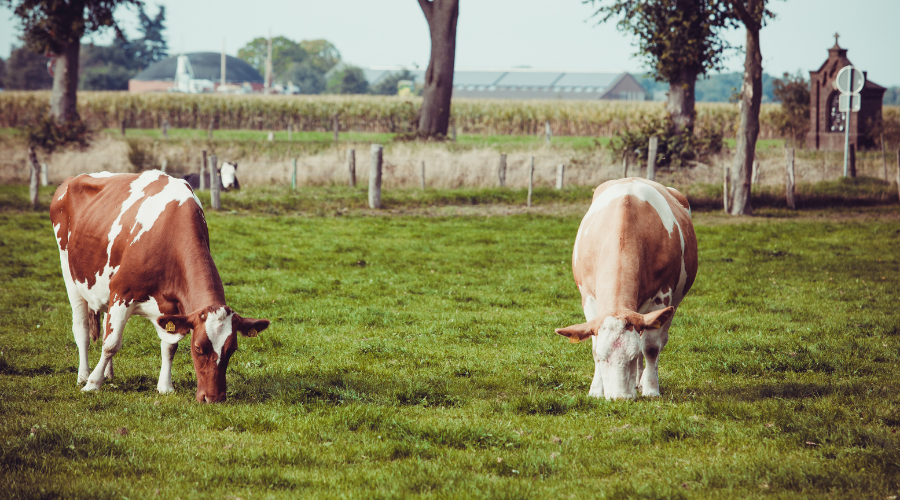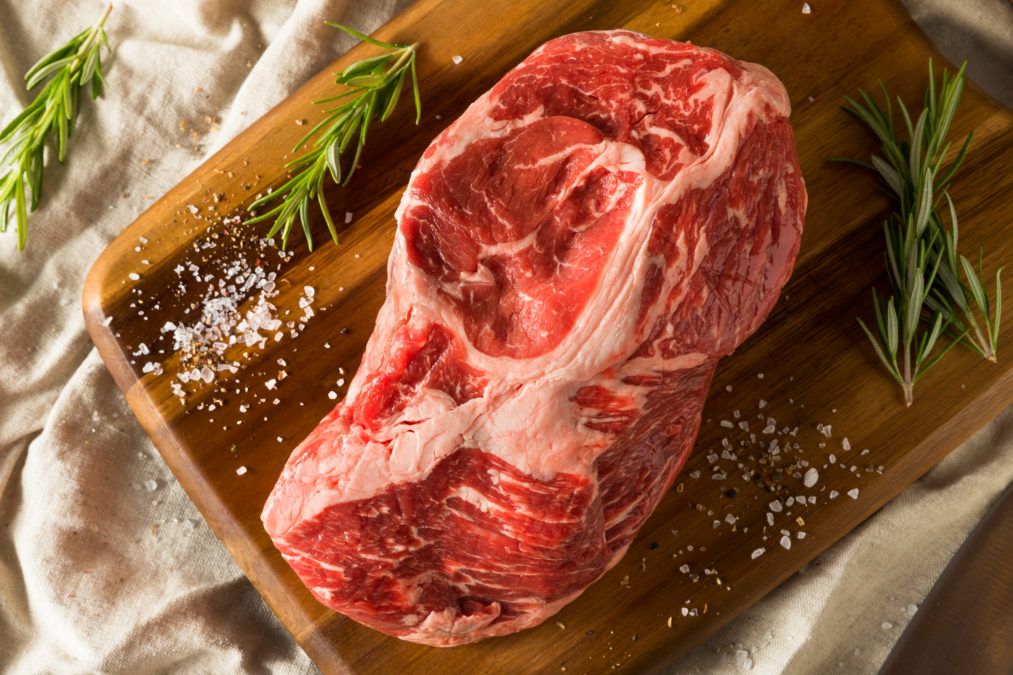The real question we should ask is, does grass-fed beef taste better? Does it have an impact on human health? Are you a conscious consumer caring enough to pay extra?
All cattle eat grass. What makes the meat of some cattle become labeled as grass-fed meat is that while all cattle start off eating grass, some are switched to feedlots at about nine months of age. Here beef producers give them an "unnatural" combination of corn and other grains as they mature to make them fatter. This type is called grain-finished cattle, and honestly, grain-finishing is necessary for parts of the country where grass doesn't grow all year. It also allows farmers to ensure their beef supply more predictably.
When cattle are allowed to eat grass their entire life, they are called 100% grass-finished beef. The chosen finishing process does impact the health of the cattle and the quality of the meat it yields when slaughtered. If you want to ensure you are getting only grass-fed beef, look for a USDA-approved package with the words "grass-fed" or "grass-finished" on it. It's one of the numerous organic food labels you can find in the supermarket.
Grass-Fed Cattle has more health benefits
If you want the best meat possible, you begin with healthy beef cattle that live comfortably and have a natural diet. Cattle are ruminants, which means they get their food by grazing.
It helps them develop strong immune systems, and they don't need antibiotics to remain healthy. The beef they yield is lower in cholesterol and saturated fat and higher in conjugated linoleic acid (CLA) and Omega 3s. Omega-3 fatty acids improve brain function and heart health and may lower cancer risk. Conjugated Linoleic Acid improves metabolism, increases muscle endurance and strength, and helps reduce body fat.
It also improves and supports immune health and fights allergies, osteoporosis, and cardiovascular disease. Research shows grass-fed cows may also have up to 5 times more CLA and Omega-3s than grain-finished beef.
Further, grass-finished cattle don’t need growth stimulants, and the beef they produce tends to be more tender and delicious. It's also generally easier to digest and easier to metabolize.
Leaner and Healthier Beef
The beef from grass-fed cattle does have some marbling. However, it tends to be leaner than grain-fed beef. Less total fat content means fewer calories. Moreover, grass-fed beef is much lower in saturated fats; as a result, it's also a great way to continue to eat red meat in moderation while reducing your risk of heart disease.
Leaner beef also enables to cook it at slightly lower temperatures, generally producing superior control over internal meat temperature.
Lesser Environmental Impact
Allowing cattle to free graze is one piece of the sustainable food movement. Feedlots produce significantly more waste than can be efficiently recycled and reabsorbed into the soil. It causes air, water, and soil pollution. Grazing animals also help keep weeds under control, expose the points of native grasses to the sun, and fertilize the land.
To feed the whole population of breeding cattle with grains, you need huge lands to grow and harvest. Every year enormous areas are being deforested, especially of the Amazonia forests, by the farmers. Because of this process, plenty of species of plants and have already extinct, and it also has a big impact on global warming.
The Conclusion
100% Grass-fed beef is tasty, tender, nutritious, easy to digest, and is a part of a healthy diet. Organic beef that had grass diets contains fewer or zero antibiotics compared to conventional grain-fed beef. Grass-fed beef products have better nutritional quality and are more cholesterol neutral.
Grass-fed beef production doesn't pollute waters and soil, slow down deforestation, and reduces carbon dioxide in the atmosphere. What's more, animal welfare affects the quality of life of conventionally-raised cattle. Cattle allowed to graze on grass their entire lives are healthier and happier.
For these and many other reasons, grass-fed beef should become the only way of cattle breeding.



